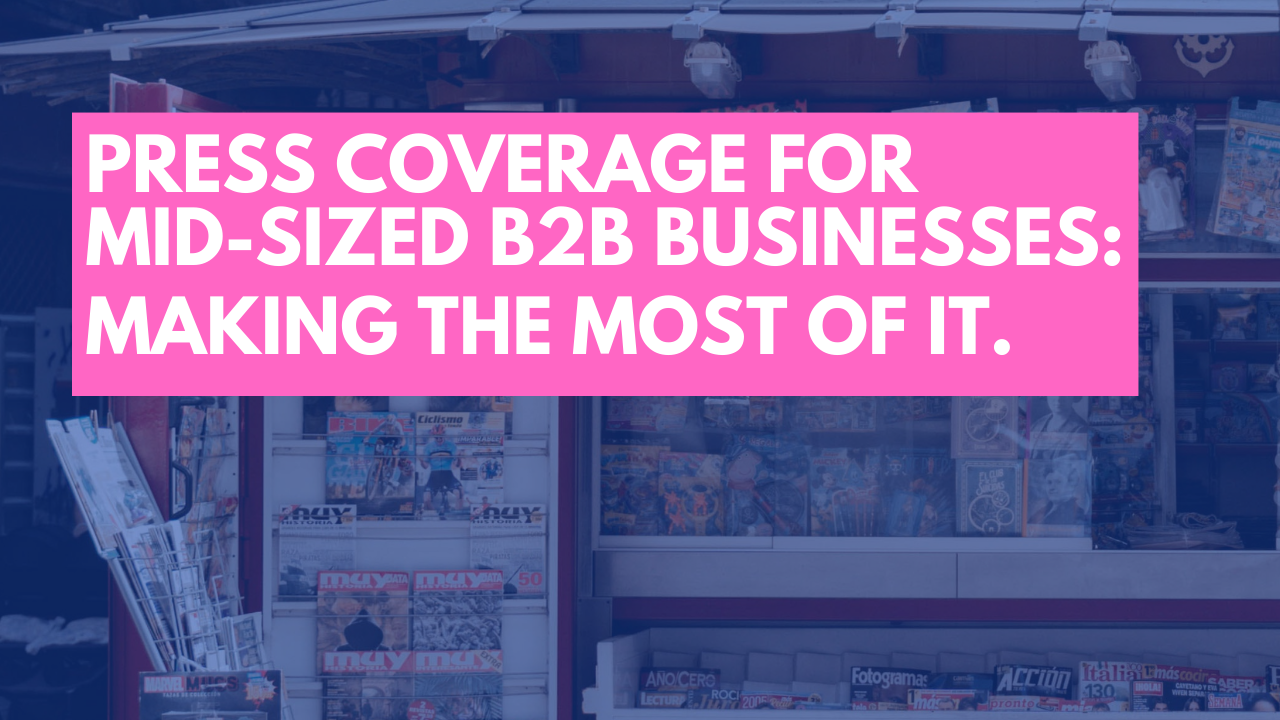If you take a practical, understanding approach to B2B press coverage then small to midsize businesses can benefit from the experience.
I once worked for a manager who described A member of the Fourth Estate that he was working with as a “tame journalist”. I’ve also worked with a business that decided to ignore press enquiries hoping that they’ll go away or that their piece would be written in a neutral stance simply because the business had not responded to their questions. I do not recommend either of these approaches: you are tempting fate.
Set your expectations
For a B2B service business, press coverage is a long game with pitfalls. It may take you time and energy to work with a journalist only to find that you are less than optimally quoted in the final piece and seeing your name in print can lead to a false sense of hope that press coverage leads to an influx of clients which is not necessarily true.
What I think B2B businesses should want from press coverage is the ‘nugget’: a sentence, phrase or paragraph about you that encapsulates a competitive advantage or selling point of your company, enshrined under the banner of that media outlet. You will then take that nugget and use it across multiple marketing platforms because it has clout.
Outbound strategy
One of the advantages of pitching directly to journalists is you can at least skew some of the subjects towards something you want to talk about. But I would not mistake an editor’s need for content for desperation to print your fascinating story.
What is it that you’re offering of value? You are offering your ideas on subjects you know a journalist or editor is interested in. Give your informed opinion or experience about these subjects and show your authority
Authority in business is commonly regarded as several years in the industry, achieving high sales figures or being a global organization. If your B2B business doesn’t have this you’ll have to work harder to prove your authority differently. Perhaps you are a unique example of your industry, the creator of an entirely new service or the authority in a field of one.
The advice I would give to a B2B business owner to increase your chances of being used is to give the journalist three things:
A strong, informed opinion
You don’t need to be a disruptor who is upsetting the cart or being outrageous. But it would help if you came down off the fence about the subject being asked.
Quick responses
Journalists work to a deadline and they will take a timely quote from another source over your carefully thought-out But late response. Unless the article is about you or your company then the ability to help the journalist meet their deadline is of more value to them than your standing in the industry.
All the information they need to use you
Have a press release template that includes your core message and
All the details the journalist needs. The less they have to think about your company the more they will describe using your words unless you’re the subject of the article and they are investigating you.
Inbound strategy
If a journalist approaches you for a quote or your opinion about a subject you might think that you are guaranteed press coverage. Not so. Journalists talk to a lot of people and if you don’t follow the three rules of contact above they may simply not use you. So remember to give them:
• A strong, informed opinion
• Quick responses
• All the information they need to use you
Your chances of being used in a piece are increased if you are of service.
If a journalist approaches you they have a specific idea for an article in mind if you do not fit that idea they won’t use you.
You cannot manipulate journalists into writing the perfect advertising feature for your company. If you’re lucky, they may lift a quote from your interview or your email response that may chime with your overall marketing strategy. That quote may reflect only part of your marketing message. But take what you can get and ride the wave.
For more help with your B2B marketing, complete the form below.

